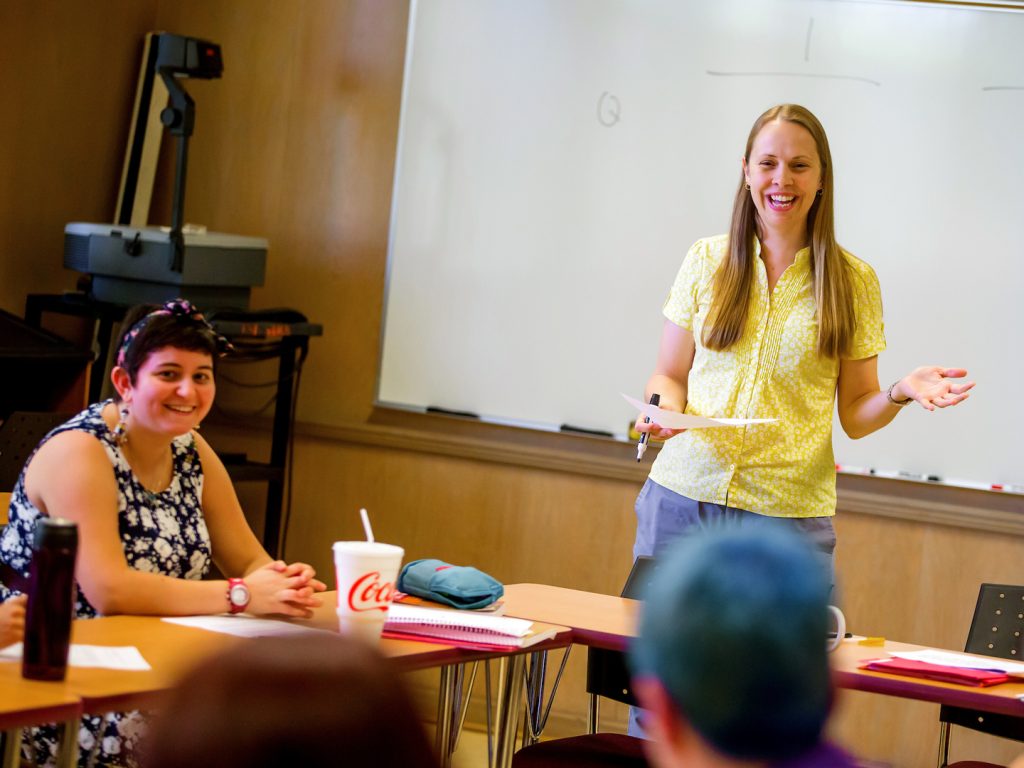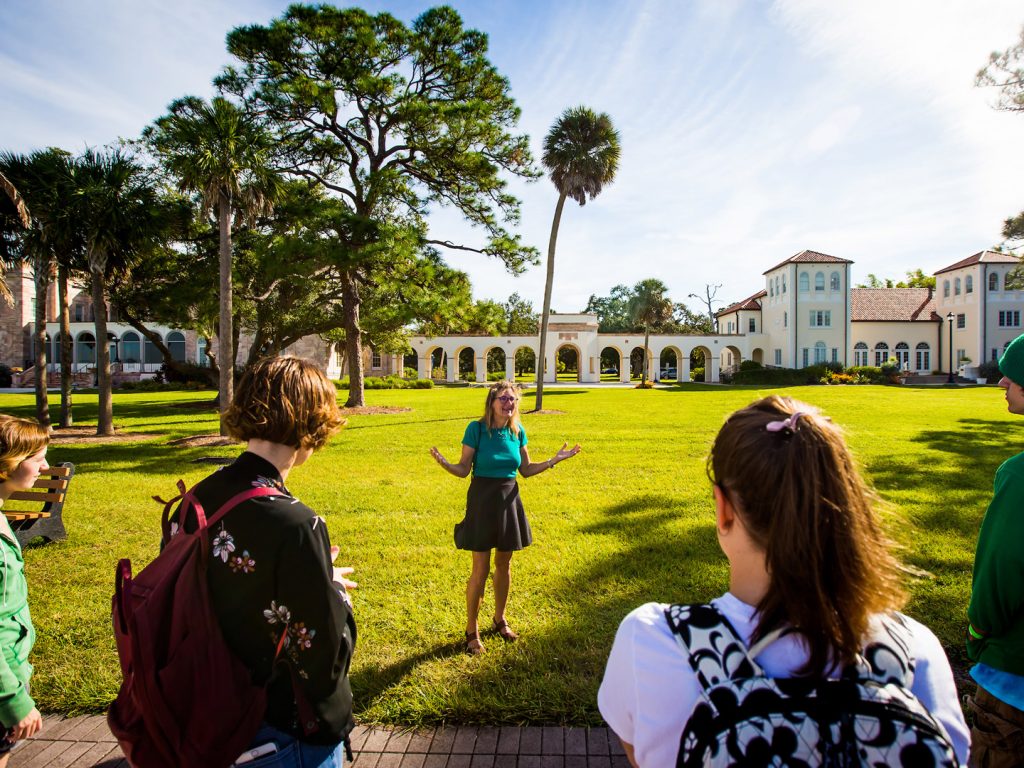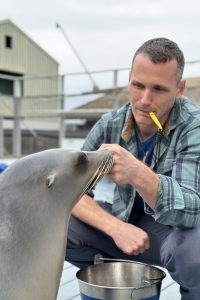The Psychology program will give students the tools needed to think critically about psychological concepts, whether as careful consumers of scientific information in everyday life, or as researchers creating new knowledge in a lab.

About the Psychology Area of Concentration
Our faculty and students study people and other animals (otters, dolphins, dogs, manatees,+) using a variety of approaches such as neuroimaging, interviews, surveys, experimental interventions, measuring physiology, volunteering in our Child Care Center, analyzing video, language, and acoustic data– and more! By using these great tools we teach students how to design research and think creatively to answer intriguing questions about behavior and the natural world.
We also have partnerships within the college (e.g., our Biopsychology and Neuroscience programs) and outside the college (e.g., the Chicago Zoological Society’s Sarasota Dolphin Research Program, Bishop Museum, the Lemur Conservation Foundation, and others) to expand their learning options. Our students go on to a variety of great futures as social and mental health advocates, doctors, lawyers, vets, researcher-scientists who earn their PhDs (alumnae/i write to tell us it’s usually “too easy” their first year), lab techs, clinical professionals, zoo/aquarium professionals, video game writers, comedians, Planned Parenthood administrators, and so much more. They also make friends for life, perhaps because they spend so much time together in our bayside building.
“New College gives you the ability to decide what you want to do for an Independent Study Project on your own. To have a month dedicated to personalized research is not something you will find many places.”
Maya Greenberg on her Psychology-based ISP on lemurs
Psychology and Sociology, Graduate 2020
Featured Course
INST 2650
Dance, Brain, and Parkinson’s
This unique, interdisciplinary seminar invites students with prior experience in Dance, Psychology, and Neuroscience, to work directly with community members with a diagnosis of Parkinson’s Disease. Students will participate in therapy, and measure its effects, while building relationships with community participants. Students must be comfortable working with community members, participating in dance, and working on experimental research. Parkinson’s Disease is a common neurodegenerative disorder associated with aging. People with Parkinson’s experience difficulty with movement, including issues with initiation and control. Dance therapy has proven effective for restoring and improving function in some people with Parkinson’s Disease. However, the exact mechanisms driving this improvement are still not clear. In this interdisciplinary seminar, led by Psychology professor Peter Cook, coordinated by Dance Instructor/Artists in Residence Leymis Bolaños Wilmott students will learn about the clinical signs and neurobiological underpinnings of Parkinson’s and the principles of dance therapy. All students will work with individuals with Parkinson’s, learning to implement therapeutic movement styles, and collecting empirical data about the effects of the treatments.
Recent courses
|
|

Recent Theses
- Serial Position Learning in Honeybees
- Synchrony Between a Mother-Calf Pair of Bottlenose Dolphins (Tursiops truncatus) Rhythm Discrimination in the Bottlenose Dolphin
- Academic Satisfaction in College Students and Relatedness to Instructors, Parents, and Peers
- Holding one’s own: The neural correlates of embodiment integrity in the face of multimodal mismatch
- Motivation and physical activity across the menstrual cycle
- An Illustrated Guide to (some of) the Neuroscience of Post-Traumatic Stress Disorder
- The Perception of Value: Affect, Physiology, and the Role of Reenactment
- The effectiveness of emotional support animals at alleviating symptoms of depression and anxiety in college students living on a residential campus
- Emotional regulation and gender: Physiological and psychological responses to emotionally power music.
- Premenstrual symptoms and the roles of emotion regulation, body awareness, and cortisol reactivity.
- Adverse childhood experiences and the neuroimaging correlates of executive functioning: An fNIRS study.
Contact Us
Social Sciences Division
Phone Number
Email Address
Location
Social Science 102
Psychology Faculty
Dr. Michelle Barton
Associate Professor of Psychology
Charlene Callahan
Professor Emeritus of Psychology
Provost Emerita
Dr. Peter Cook
Associate Professor, Marine Mammal Science
Dr. Steven Graham
Associate Professor of Psychology
Dr. Heidi Harley
Founder & Chief Research Officer, Marine Mammal Science / Peg Scripps Buzzelli Endowed Chair
Charlene Callahan
Professor Emeritus of Psychology
Provost Emerita



